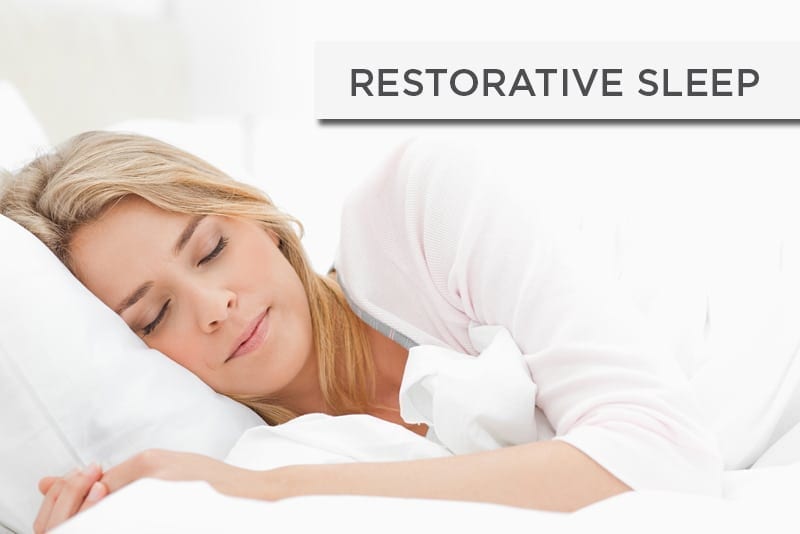Much has been said about sleep. It’s a key part of a healthy lifestyle, can benefit your heart, weight, mind, skin and so much more. Unfortunately, insufficient and improper sleep is an epidemic. Nearly 8 in 10 Americans admit they would feel better if they had an extra hour of sleep*.
A seemingly repetitive and mundane yet such an important part of our physiology, sleep requires a huge deal of orchestration of various hormones and reactions right from priming the body to feel sleepy, then to fall asleep, to sustain that state till the morning and last but not the least to wake up feeling rested and refreshed.
Amongst all, two vital things need to happen in the sleep center of the brain: adrenalin and cortisol have to fall and melatonin has to rise. For the necessary rise and fall of adrenalin, there needs to be enough of the amino acid tyrosine available– and if that need isn’t met, there’s usually exhaustion and the need to sleep but sleep evades the person. Tryptophan – another amino acid which naturally goes into serotonin and later melatonin production can be pulled away into the quinolone pathway in a high oxidative state and when there is a lack of essential antioxidants and a presence of acidosis. This results in serotonin, and later melatonin, not adequately rising or dipping suddenly in the night – often leading to another frequent problem of getting up too early and not be able to go back to sleep. Causing the dilemma of I am awake but I don’t want to be and I am not rested.
With the pressures of work, family, environment and health stressors, sleep is elusive to many. Having a restful and restorative sleep then is not a given but a valuable choice that you make. I have outlined a few basic action items that can help you get a good night’s sleep.
Dr Jaffe’s 5 step action plan for healthier restful sleep:
* Incorporate relaxing rituals like
* 20 minutes- salt and soda bath. This requires ½ cup of Epsom salts and baking soda in a tub of warm water (with calming essential oils if desired) and towel off when done.
* 5 minutes of abdominal breathing
* 15 minutes of active meditation
* For an elite ritual – use dichromatic green lights before bed to improve galvanic skin responses.
* Keep devices like phones, computers and tablets out of the bedroom. They can contribute to an increase in the electromagnetic field that can disrupt sleep. Some sleep better after clearing their bedroom of clocks and even books.
* Consider taking tryptophan with B6 and zinc for enhanced uptake to fuel healthy serotonin and melatonin production. Magnesium is a valuable calming mineral and can be vital for relaxing the nerves and muscles needed to induce restful sleep.
* Caffeinated drinks are best avoided after lunch. Water and other alkalinizing beverages like herbal teas are good choices
* Make sure you don’t eat too close to bedtime- it is preferable to keep at least 2-3 hours’ gap. Foods that can be digested and assimilated easily without immune burden should be incorporated.
Happiness is sleeping undisturbed till you wake up naturally.
* 2014 Better Sleep Council survey
Did you enjoy this post? We post new content regularly! Click here to see our latest blog posts.


